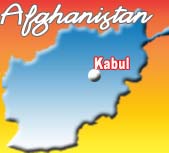UN report: Afghan opium cultivation decreases 19 per cent in 2008
 Kabul - The area under opium poppy cultivation in Afghanistan fell 19 per cent on the year in 2008, although opium production declined at the much slower rate of 6 per cent, a new United Nations report said Tuesday.
Kabul - The area under opium poppy cultivation in Afghanistan fell 19 per cent on the year in 2008, although opium production declined at the much slower rate of 6 per cent, a new United Nations report said Tuesday.
Afghanistan remains the world's largest supplier of heroin, according to the report from the UN Office on Drugs and Crime (UNODC), released in Kabul.
UNODC Executive Director Antonio Maria Costa highlighted what he called "a perfect overlap" between areas of opium production and zones of high Taliban activity.
"The report shows a 19-per-cent decrease in opium cultivation to 157,000 hectares, down from a record harvest of 193,000 in 2007," UNODC said.
Opium production had dropped "less dramatically" and was down 6 per cent, from 8,200 to 7,700 tons, owing it to a higher yield of 48.8 kilograms per hectare, up from 42.5 kg in 2007.
This year there were 18 opium-free provinces, up from 13 in 2007, with an increase of almost 50 per cent in persuading farmers to abandon poppy growing. Afghanistan has
34 provinces.
The country provided 93 per cent of the world's heroin last year.
The report said that good leadership by some governors and drought, particularly in the northern and north-western provinces, had contributed to the decline in opium production.
However, the southern provinces, where the Taliban-led insurgency is at its peak, this year cultivated 98 per cent of the country's opium.
The southern Helmand province, the main Taliban hotbed, grew two thirds of the national total.
"If Helmand were a country, it would once again be the world's biggest producer of illicit drugs," Costa told a press conference in Kabul.
"There is now a perfect overlap between zones of high risk and regions of high opium cultivation," he said.
"Since drugs are funding insurgency, and insurgency enables drug cultivation, insurgency and narcotics must be fought together," he added.
While praising the gains this year, Costa said: "Afghanistan is one of the poorest countries in the world, and the latest food crisis has made farmers even more vulnerable. Opium is a seasonal plant. It may be gone today, but back again tomorrow."
He called on the Afghan authorities to help farmers find a "viable alternative" to opium.
"This must be done now while farmers are deciding whether or not to plant opium for the 2008/09 harvest: timely and targeted international assistance is vital," Costa said.
He called on the Afghan government and some 70,000 NATO forces in country to shift their focus from destroying poppy fields to closing opium markets, destroying heroin labs, and going after the drug convoys.
"Corrupt officials, landowners, warlords and criminals must feel the full force of the law, otherwise the opium economy will continue to operate with impunity, and the Taliban will continue to profit from it", the UNODC chief warned.
Costa urged the central government to stay the course and provide the leadership, security, justice needed to make further progress against the poppy problem.
"Drugs and terrorists should not determine the fate of Afghanistan", he added. (dpa)